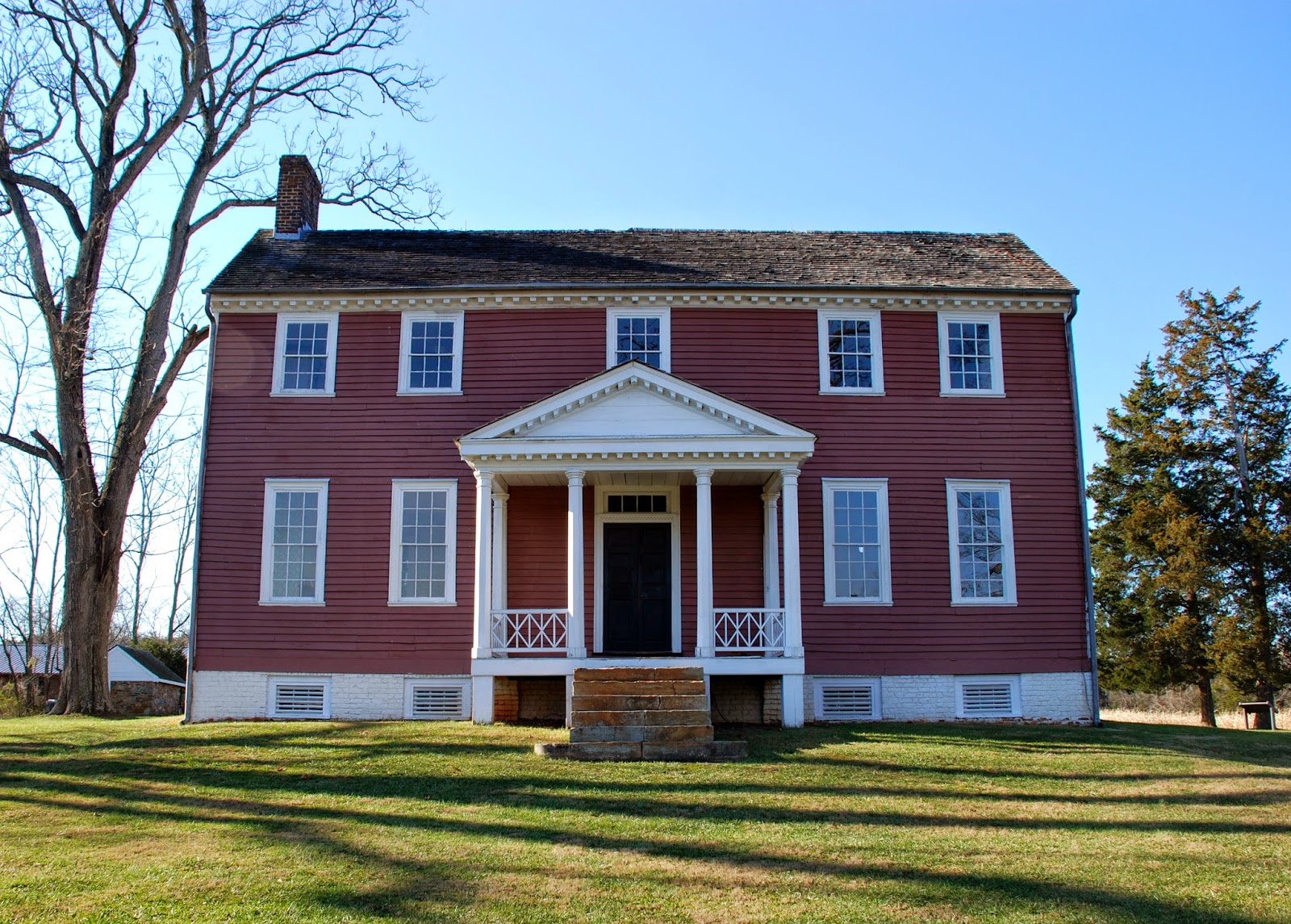Unless your last name is Jackson, or Hooker, Chancellorsville Battlefield may not resonate with everyone. Compared to Gettysburg, Antietam, and Manassas, it is not one of the more well known Civil War locations. Bonnie and I visited last Sunday, taking advantage of the looped paths traversing the nearby woods and fields, offering us a nice six mile hike.
Interestingly, this is the location where "Stonewall" Jackson was shot by friendly fire, resulting in having an arm amputated He died eight days later. Shot in one location, buried in another; his arm is buried in another location still. More on that soon.
The hike itself was great! The path starts where a monument marks where Jackson was shot (see above), and a grave of an unidentified Civil War soldier nearby. It quickly heads into woodlands, where aging earthworks remain and wilderness made for difficult and gruesome battles.
 |
| Earthworks are difficult to make out in the fallen leaves, where troops would lay in the trenches exchanging fire. |
 |
| The wooded paths traversed rolling hills, which lead to the open battle fields ahead. |
 |
| Wilderness: gruesome battles, fires, the screams of those left dying |
The woods open up to fields, and farms. In all of the battlefields I have hiked, it is the story of the farm families that make me pause. These were people leading their lives in relative obscurity, until the soldiers came, taking over the farm home; the residents lucky if they escaped with their lives. Rarely did their house and belongings remain.
In fact, Chancellorsville is not a town at all. It was the Chancellors farm (though a very large farm compared to most.) As it was at a crossroad, it came to be known as Chancellorsville.
 |
| The Chancellors Farm: aka Chancellorsville |
 |
| The remains of Chancellorsville |
So, here you had the Confederate General "Stonewall" Jackson (under the leadership of Robert E. Lee), at battle with Union General Joseph Hooker. While Hooker had seen some successes earlier in the Civil War, he was not very successful in Spotsylvania, being pushed back North across the Rappahannock river.
However, it was during a battle with Hooker's forces, on May 2, 1863, when Jackson was wounded by his own men at the Battle of Chancellorsville. With two bullet wounds to his left arm and one to his left hand, he was taken to nearby Wilderness Tavern where his arm was amputated.
Robert E. Lee, upon hearing of the amputation sent a young Staff Officer to send a message, “Give him my affectionate regards, and tell him to make haste and
get well, and come back to me as soon as he can. He has lost his left
arm, but I have lost my right.”
Eight days later, on May 10, 1863, Jackson died near Guiney Station, about 30 miles from Chancellorsville. He died not from his injuries, but from pneumonia. He is buried in Lexington, Virginia.
So, where's the arm? Unbelievably, after Jackson's arm was amputated, his chaplain, Beverly Tucker Lacy, took the arm to his brothers farm, Ellwood Manor, which was just nearby. Stonewall Jackson's arm is buried in the family cemetery there.
Hiking is many things. Much needed exercise, a sense of exploration, a time to think, a time to learn. Never did I ever think I would come across a grave site with the arm of Thomas Jonathon "Stonewall" Jackson.
Keep hiking, friends!












No comments:
Post a Comment